crude attempt: COMPUTER MUSIC JOURNAL [ MIT Press ]
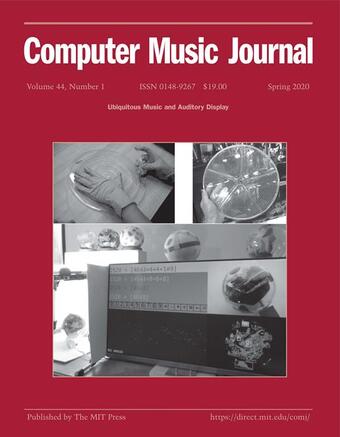
Chris Cundy: Crude Attempt
Digital download 2020, available from https://chriscundy.bandcamp.com/album/crude-attempt
Chris Cundy's Crude Attempt is a collection of four tracks, constructed in his home studio in Gloucestershire, England. This work's instrumental range consists of bass clarinet, a Korg MS20 synthesizer, Watkins Copicat tape echo, and amplified flutes - shaping a musical relationship between the bass clarinet and a sound world stemming from electronic instruments. Using this sonic palette, Cundy creates delicate and subtle timbral combinations. His studio environment, as well as the social restrictions due to Covid lockdown in England, greatly influenced Cundy's recent thinking. As such, it is this social scenario that led to a heightened sense of place, compared with his previous work. This awareness enabled Cundy to shift focus onto sonic elements that ultimately result in carefully managing seemingly less demonstrative gestures - meaning that the issue of "liveness," or how one might build a strategy around that concept, became less important for this project. Here, due to Cundy's new approach regarding the studio environment, a desire to take things away or cut things back emerged. This is in contrast to his previous approaches towards making - a given performing environment, or ecosystem. We can describe that type of musical environment as a dynamic configuration of relationships between performers, their sound materials, and the tools they use to produce these materials. As such, Cundy's current performance or compositional practice alludes to a situation where those changes and ambiguities present in normal situations may have dissolved. It is this more "inside" approach that is reflected throughout Crude Attempt. [...]
SETH ROZANOFF (2021)
Digital download 2020, available from https://chriscundy.bandcamp.com/album/crude-attempt
Chris Cundy's Crude Attempt is a collection of four tracks, constructed in his home studio in Gloucestershire, England. This work's instrumental range consists of bass clarinet, a Korg MS20 synthesizer, Watkins Copicat tape echo, and amplified flutes - shaping a musical relationship between the bass clarinet and a sound world stemming from electronic instruments. Using this sonic palette, Cundy creates delicate and subtle timbral combinations. His studio environment, as well as the social restrictions due to Covid lockdown in England, greatly influenced Cundy's recent thinking. As such, it is this social scenario that led to a heightened sense of place, compared with his previous work. This awareness enabled Cundy to shift focus onto sonic elements that ultimately result in carefully managing seemingly less demonstrative gestures - meaning that the issue of "liveness," or how one might build a strategy around that concept, became less important for this project. Here, due to Cundy's new approach regarding the studio environment, a desire to take things away or cut things back emerged. This is in contrast to his previous approaches towards making - a given performing environment, or ecosystem. We can describe that type of musical environment as a dynamic configuration of relationships between performers, their sound materials, and the tools they use to produce these materials. As such, Cundy's current performance or compositional practice alludes to a situation where those changes and ambiguities present in normal situations may have dissolved. It is this more "inside" approach that is reflected throughout Crude Attempt. [...]
SETH ROZANOFF (2021)
mountains: INTERNATIONAL CLARINET ASSOCIATION
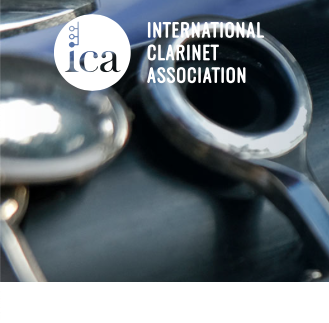
Mountains
Chris Cundy, bass clarinet, tape preparations and accompaniments. C. Cardew: Solo with Accompaniment; Mountains; T. de Leeuw: Mountains; T. Chrysakis: Fryktoria; J. Cage: Five.
Aural Terrains, TRRN1444.
Total Time: 55:31.
This album is an unapologetic presentation of avant-garde bass clarinet music. Cundy hasn’t set out with the intention to wow a listener with obsequious refinement but instead seems to have focused on presenting the ideas and philosophies of these works in their purest form. There is value, beauty and courage in the artistic freedom required to let a work stand on its own two feet and Cundy should be applauded for that endeavor.
Solo with Accompaniment by Cornelius Cardew for bass clarinet with three accompaniments is an exploration of timbre and texture. Clarinetist Chris Cundy weaves in and out of the electronic texture skillfully and this piece sets the tone for what is to come on the rest of the album.
Mountains by Ton de Leeuw for bass clarinet and tape is an excellent example of an extended work that blends acoustic and electronic elements. The short thematic material that interplays between the clarinet and tape is handled well by Cundy. The fragmented nature of this piece and similarity of color between the acoustic and recorded parts make it challenging to capture an expressive arc in a recording but Cundy has done just that as well as I can imagine.
Fryktoria by Thanos Chrysakis for five bass clarinets is a study of the broad tonal palette the bass clarinet has to offer, particularly in the arena of non-traditional techniques. Rather than gathering the organization of the piece in terms of rhythm or tonal material, the approach here strikes me as a set of scenes which use different textures and timbres to morph from section to section.
Mountains for solo bass clarinet by Cornelius Cardew is written in four variations. The first variation is simple from a technical standpoint and Cundy approaches it with a firm rhythmic feel and with carefully placed diminuendos. The second variation is much more rhapsodic with constant tonal variations achieved by voiced harmonics, bisbigliando and embouchure variations. Variation three is a cadenza which harkens back to the rhythmic feel from the first variation, without much variation in pulse or dynamic, it is at times difficult to imagine where the cadenza is leading. Variation four is quite lively and rhythmic and while the piece ends with a taper to niente, this variation still serves as a tidy ending to this interesting piece.
Five by John Cage is one of his number pieces which were open in instrumentation. This piece also gives the listener long periods of stasis where nothing is happening in terms of the melodic, harmonic, or rhythmic material. However, I think that is the point and it is executed well by Cundy.
If you seek an album to challenge your musical ideals and help you explore the many contemporary tonal possibilities the bass clarinet can achieve, then Mountains is the album for you.
SPENCER PREWITT
Chris Cundy, bass clarinet, tape preparations and accompaniments. C. Cardew: Solo with Accompaniment; Mountains; T. de Leeuw: Mountains; T. Chrysakis: Fryktoria; J. Cage: Five.
Aural Terrains, TRRN1444.
Total Time: 55:31.
This album is an unapologetic presentation of avant-garde bass clarinet music. Cundy hasn’t set out with the intention to wow a listener with obsequious refinement but instead seems to have focused on presenting the ideas and philosophies of these works in their purest form. There is value, beauty and courage in the artistic freedom required to let a work stand on its own two feet and Cundy should be applauded for that endeavor.
Solo with Accompaniment by Cornelius Cardew for bass clarinet with three accompaniments is an exploration of timbre and texture. Clarinetist Chris Cundy weaves in and out of the electronic texture skillfully and this piece sets the tone for what is to come on the rest of the album.
Mountains by Ton de Leeuw for bass clarinet and tape is an excellent example of an extended work that blends acoustic and electronic elements. The short thematic material that interplays between the clarinet and tape is handled well by Cundy. The fragmented nature of this piece and similarity of color between the acoustic and recorded parts make it challenging to capture an expressive arc in a recording but Cundy has done just that as well as I can imagine.
Fryktoria by Thanos Chrysakis for five bass clarinets is a study of the broad tonal palette the bass clarinet has to offer, particularly in the arena of non-traditional techniques. Rather than gathering the organization of the piece in terms of rhythm or tonal material, the approach here strikes me as a set of scenes which use different textures and timbres to morph from section to section.
Mountains for solo bass clarinet by Cornelius Cardew is written in four variations. The first variation is simple from a technical standpoint and Cundy approaches it with a firm rhythmic feel and with carefully placed diminuendos. The second variation is much more rhapsodic with constant tonal variations achieved by voiced harmonics, bisbigliando and embouchure variations. Variation three is a cadenza which harkens back to the rhythmic feel from the first variation, without much variation in pulse or dynamic, it is at times difficult to imagine where the cadenza is leading. Variation four is quite lively and rhythmic and while the piece ends with a taper to niente, this variation still serves as a tidy ending to this interesting piece.
Five by John Cage is one of his number pieces which were open in instrumentation. This piece also gives the listener long periods of stasis where nothing is happening in terms of the melodic, harmonic, or rhythmic material. However, I think that is the point and it is executed well by Cundy.
If you seek an album to challenge your musical ideals and help you explore the many contemporary tonal possibilities the bass clarinet can achieve, then Mountains is the album for you.
SPENCER PREWITT
timber timbre & chris cundy at melkweg Amsterdam: CDSCORE
Timber Timbre & Chris Cundy
in Melkweg in Amsterdam (12/10/2017)
It was a special evening, let me first establish that. What the opening act Chris Cundy and Timber Timbre would bring has far exceeded my expectations.
First Chris Cundy surprised me with his performance on bass clarinet. What a special music that man plays. It is called modern improvised jazz. A totally improvised session on bass clarinet, that's what it looked like, although sheet music was occasionally put aside. Probably the basis of songs. Among others, "Montreal Diamonds" and "Winter Roses" made a big impression.
From Timber Timbre I only know the recently released album "Sincerely, Future Pollution". I had an idea the music they would play would be flashy in one way or another, but I did not expect the radiation of the band.
The once anti-hero Elvis Costello had been the center of attention here. Taylor Kirk seems to have run away from a 70s American soap opera, like the eternal underdog. Even his singing has an incredibly modest profile, but no trace of uncertainty. He is a very convincing singer. On the stage he stands mainly in front of the spotlights, in the half darkness. (It was a long drive to get a good picture of him.) And yet the message comes through his gestures and something subtle in the intonation of the voice. There is only that confusing mismatch with appearance and positioning.
Until the encore there was little contact with the audience, it was continuous playing, playing and playing. The surprisingly young audience went all the way toward the music. (The hope that I expressed in my speech last week about the current state of modern music, which gave me a boost of encouragement.)
It was a great concert until Chris Cundy for "Until the Night Is Over" also appeared on the scene again. He was (!) In the spotlight and gave away a fantastic saxophone game. Awesome! He disappeared again, however, and I adjusted my expectations again. That was a miscalculation, with "Grifting" he came back to make the song even more beautiful.
From that moment on, Timber Timbre were completely free, in combination with Chris Cundy. "Do I have Power" and "Woman" become the bouncers of the evening. By then I do not know how I am anymore. There are so many styles and accents added to the music that it is almost unreal. A solo by the keyboard player Mathieu Charbonneau even reminded me of Pink Floyd. An unreal, but well placed mix.
After a short break they come back to play 2 more songs. The experts can decide which ones. 4 are listed on the setlist. Anyway, the party is celebrated with the saxophone of Chris Cundy in the lead. What a great ending! I walked around for a while to see if I could score some CDs. It is so nice to come home after a concert with a couple of albums linked to such a performance.
in Melkweg in Amsterdam (12/10/2017)
It was a special evening, let me first establish that. What the opening act Chris Cundy and Timber Timbre would bring has far exceeded my expectations.
First Chris Cundy surprised me with his performance on bass clarinet. What a special music that man plays. It is called modern improvised jazz. A totally improvised session on bass clarinet, that's what it looked like, although sheet music was occasionally put aside. Probably the basis of songs. Among others, "Montreal Diamonds" and "Winter Roses" made a big impression.
From Timber Timbre I only know the recently released album "Sincerely, Future Pollution". I had an idea the music they would play would be flashy in one way or another, but I did not expect the radiation of the band.
The once anti-hero Elvis Costello had been the center of attention here. Taylor Kirk seems to have run away from a 70s American soap opera, like the eternal underdog. Even his singing has an incredibly modest profile, but no trace of uncertainty. He is a very convincing singer. On the stage he stands mainly in front of the spotlights, in the half darkness. (It was a long drive to get a good picture of him.) And yet the message comes through his gestures and something subtle in the intonation of the voice. There is only that confusing mismatch with appearance and positioning.
Until the encore there was little contact with the audience, it was continuous playing, playing and playing. The surprisingly young audience went all the way toward the music. (The hope that I expressed in my speech last week about the current state of modern music, which gave me a boost of encouragement.)
It was a great concert until Chris Cundy for "Until the Night Is Over" also appeared on the scene again. He was (!) In the spotlight and gave away a fantastic saxophone game. Awesome! He disappeared again, however, and I adjusted my expectations again. That was a miscalculation, with "Grifting" he came back to make the song even more beautiful.
From that moment on, Timber Timbre were completely free, in combination with Chris Cundy. "Do I have Power" and "Woman" become the bouncers of the evening. By then I do not know how I am anymore. There are so many styles and accents added to the music that it is almost unreal. A solo by the keyboard player Mathieu Charbonneau even reminded me of Pink Floyd. An unreal, but well placed mix.
After a short break they come back to play 2 more songs. The experts can decide which ones. 4 are listed on the setlist. Anyway, the party is celebrated with the saxophone of Chris Cundy in the lead. What a great ending! I walked around for a while to see if I could score some CDs. It is so nice to come home after a concert with a couple of albums linked to such a performance.
hidden bomba: ORYNX-IMPROV'ANDSOUNDS
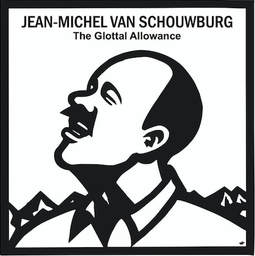
Chris Cundy & Benedict Taylor
Hidden Bomba
LOR091
Dec 12th 2017
Voici une collaboration qui coule de source : clarinette basse (Chris Cundy) et violon alto (Benedict Taylor) enregistrés dans la Francis Close Hall Chapel à l’Université de Gloucestershire. Le label, Linear Obsessional Recordings est dirigé par Richard Sanderson, un excellent créateur sonore et improvisateur britannique. On connaît ma prédilection pour l’alto ou viola en anglais, l’instrument a un registre de fréquences et une épaisseur plus riches que le violon à mon goût. Si vous n’êtes pas convaincu, recherchez le travail de Mat Maneri, Charlotte Hug, Szilard Mezei, Ernesto Rodrigues par exemple, et maintenant, Benedict Taylor, via leurs enregistrements et vous allez être servis. C’est un signe indéniable de l’importance de l’instrument et de sa spécificité toute particulière. Et donc, Benedict Taylor a acquis un style charnu et dynamique plein de glissandi microtonaux élancés et bruissants. Le clarinettiste basse Chris Cundy, un pilier de la scène régionale british, joue avec la dynamique et l’intelligence requises pour dialoguer et complémenter le travail du cordiste. Un travail épuré et stylé qui encadre son lyrisme. Une conversation éclairée utilisant les ressources sonores et instrumentales des deux instruments de manière égalitaire et entièrement partagée. Les huit morceaux se succèdent et ne se ressemblent pas, si ce n’est que Chris Cundy affectionne un agrément, une coloration qui devient récurrente au fil de l’album, comme s’il avait une idée derrière la tête. Attentif au début de la session, l’imaginatif Benedict Taylorapporte des éléments subtilement disruptifs dans le déroulement des opérations. C’est assurément un excellent album dans la lignée de l’improvisation libre dans une dimension lyrique, expressive, raffinée, sans trop d’audaces soniques appuyées, mais pleine de de sensibilité. Il faut attendre le sixième morceau Agressive Silver Linespour pénétrer dans un domaine de recherche plus aigu et singulier. L’enregistrement et la musique sont conditionnés par le lieu, une chapelle, qui tient vraiment au cœur du clarinettiste. Bravo à ces deux improvisateurs. JEAN-MICHEL VAN SCHOUWBURG
Hidden Bomba
LOR091
Dec 12th 2017
Voici une collaboration qui coule de source : clarinette basse (Chris Cundy) et violon alto (Benedict Taylor) enregistrés dans la Francis Close Hall Chapel à l’Université de Gloucestershire. Le label, Linear Obsessional Recordings est dirigé par Richard Sanderson, un excellent créateur sonore et improvisateur britannique. On connaît ma prédilection pour l’alto ou viola en anglais, l’instrument a un registre de fréquences et une épaisseur plus riches que le violon à mon goût. Si vous n’êtes pas convaincu, recherchez le travail de Mat Maneri, Charlotte Hug, Szilard Mezei, Ernesto Rodrigues par exemple, et maintenant, Benedict Taylor, via leurs enregistrements et vous allez être servis. C’est un signe indéniable de l’importance de l’instrument et de sa spécificité toute particulière. Et donc, Benedict Taylor a acquis un style charnu et dynamique plein de glissandi microtonaux élancés et bruissants. Le clarinettiste basse Chris Cundy, un pilier de la scène régionale british, joue avec la dynamique et l’intelligence requises pour dialoguer et complémenter le travail du cordiste. Un travail épuré et stylé qui encadre son lyrisme. Une conversation éclairée utilisant les ressources sonores et instrumentales des deux instruments de manière égalitaire et entièrement partagée. Les huit morceaux se succèdent et ne se ressemblent pas, si ce n’est que Chris Cundy affectionne un agrément, une coloration qui devient récurrente au fil de l’album, comme s’il avait une idée derrière la tête. Attentif au début de la session, l’imaginatif Benedict Taylorapporte des éléments subtilement disruptifs dans le déroulement des opérations. C’est assurément un excellent album dans la lignée de l’improvisation libre dans une dimension lyrique, expressive, raffinée, sans trop d’audaces soniques appuyées, mais pleine de de sensibilité. Il faut attendre le sixième morceau Agressive Silver Linespour pénétrer dans un domaine de recherche plus aigu et singulier. L’enregistrement et la musique sont conditionnés par le lieu, une chapelle, qui tient vraiment au cœur du clarinettiste. Bravo à ces deux improvisateurs. JEAN-MICHEL VAN SCHOUWBURG
timber timbre / chris cundy : CONCERTIONLINE

Sincerely, Timber Timbre: live report di Milano
Oct 6th 2017
[...] quando sul palco sale il talentuoso sassofonista Chris Cundy, in tour con la band per aprire le date, a dare quel tocco di sensualità in più. [...] Ad esempio il sax che fa padrone su Bleu Nuit ci trascina sulla scena di un crimine, come avvolti da un lungo impermeabile bagnato sul ciglio della strada di una città che di notte fa finta di dormire e ci scalda come l’abbraccio di un amante che da lungo ci attendeva. Freddo e calore di incontrano e si scontrano per rinnovare di volta in volta l’approccio del pubblico alla loro musica. CHIARA MORELLI
Oct 6th 2017
[...] quando sul palco sale il talentuoso sassofonista Chris Cundy, in tour con la band per aprire le date, a dare quel tocco di sensualità in più. [...] Ad esempio il sax che fa padrone su Bleu Nuit ci trascina sulla scena di un crimine, come avvolti da un lungo impermeabile bagnato sul ciglio della strada di una città che di notte fa finta di dormire e ci scalda come l’abbraccio di un amante che da lungo ci attendeva. Freddo e calore di incontrano e si scontrano per rinnovare di volta in volta l’approccio del pubblico alla loro musica. CHIARA MORELLI
gustav lost : DOWNTOWN MUSIC GALLERY NYC
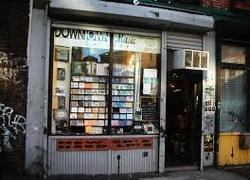
Chris Cundy
Gustav Lost
FMRCD423
This is a most impressive debut disc by UK bass clarinettist Chris Cundy. I played this disc three times in a row last Sunday (10/30/16) while working alone and marveling at how great it is. The first thing that stands out about this sextet is the combination of instruments: bass clarinet, cello, piano and guitar, warm, wooden-toned and most enchanting. Often the bass clarinet and cello either shadow or complement each other, playing thoughtful, rich harmonies together, gracefully at times, creating lush autumnal colors. There is one piece dedicated to the late British saxist Lol Coxhill, who always had an odd sense of humor. The piece is called, “Hello Pigeon” and it captures Coxhill’s quaint spirit just right. This song had me whistling along and even snapping my fingers, smiling throughout. I like that Mr. Cundy combines a blend of playfulness with more unpredictable arrangements. Thus making this disc most charming and uplifting. A pleasant departure from the more complex or darker side of music we usually review. BRUCE LEE GALLANTER
Gustav Lost
FMRCD423
This is a most impressive debut disc by UK bass clarinettist Chris Cundy. I played this disc three times in a row last Sunday (10/30/16) while working alone and marveling at how great it is. The first thing that stands out about this sextet is the combination of instruments: bass clarinet, cello, piano and guitar, warm, wooden-toned and most enchanting. Often the bass clarinet and cello either shadow or complement each other, playing thoughtful, rich harmonies together, gracefully at times, creating lush autumnal colors. There is one piece dedicated to the late British saxist Lol Coxhill, who always had an odd sense of humor. The piece is called, “Hello Pigeon” and it captures Coxhill’s quaint spirit just right. This song had me whistling along and even snapping my fingers, smiling throughout. I like that Mr. Cundy combines a blend of playfulness with more unpredictable arrangements. Thus making this disc most charming and uplifting. A pleasant departure from the more complex or darker side of music we usually review. BRUCE LEE GALLANTER
florian zeller's the mother: BATH CHRONICLE
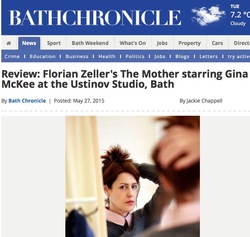
Review: Florian Zeller's The Mother starring Gina McKee.
Gina McKee plays the mother Anne superbly, segueing seamlessly into different modes of being. It draws you in, helped in no little way by Chris Cundy's haunting and increasingly discordant jazz notes as the play builds to its climax. JACKIE CHAPPELL
Gina McKee plays the mother Anne superbly, segueing seamlessly into different modes of being. It draws you in, helped in no little way by Chris Cundy's haunting and increasingly discordant jazz notes as the play builds to its climax. JACKIE CHAPPELL
cold specks: THE WALL STREET JOURNAL
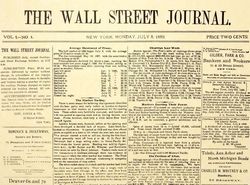
Cold Specks' Arresting Mix.
Ms. Hussain decided to incorporate a variety of unexpected instruments in her arrangements for "Neuroplasticity," which she crafted with producer Jim Anderson. […]the album's opening statement. "Bodies at Bay" starts off as conventional rock before veering off to a limber interlude featuring Chris Cundy […] JIM FUSILLI
Ms. Hussain decided to incorporate a variety of unexpected instruments in her arrangements for "Neuroplasticity," which she crafted with producer Jim Anderson. […]the album's opening statement. "Bodies at Bay" starts off as conventional rock before veering off to a limber interlude featuring Chris Cundy […] JIM FUSILLI
cold specks: LOS ANGELES TIMES
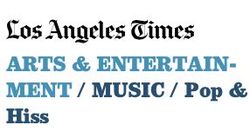
Cold Specks Surveys the ages during confident Echo set.
Spx and her band hit on a throbbing blues groove that suggested a strange mix of Nina Simone and the Bad Seeds. Swirling around the song was bass clarinet player Chris Cundy, who's work on sax and woodwind punctuated most songs. In "Invitation," his runs scribbled through the bars like a birdsong interrupting an argument. […]
RANDALL ROBERTS
Spx and her band hit on a throbbing blues groove that suggested a strange mix of Nina Simone and the Bad Seeds. Swirling around the song was bass clarinet player Chris Cundy, who's work on sax and woodwind punctuated most songs. In "Invitation," his runs scribbled through the bars like a birdsong interrupting an argument. […]
RANDALL ROBERTS
cold specks: MASS FREQUENCY

Viva Cold Specks!
Last night two amazing bands not only played Schubas Tavern in Chicago they owned the stage. The first band Esta Vivo created a sonic wall of playful guitar riffs, funky bass riffs and almost tribal drum beats. Front man Ryan McMahon owned the crowd with his ominous vocals and high energy antics.
The true star of the show was powerhouse vocalist Al Spx of Canadian Doom Soul band Cold Specks. Gracing the stage in a dress that would make Ida B. Wellsherself proud Al set the tone for her performance. Cold Specks could be described as an amazing indie folk rock band at first glance but there’s something much deeper to the sounds they produce. The band is performing modern-day spirituals paying homage to an oral tradition passed down from slavery. It’s almost as if Chris Cundy is raising the dead when he hits bone rattling low notes on the Bass Clarinet. Together the band create seamless wall of sound centered around Al’s poetic lyricism. Watching them makes you feel as though you’re being let into something private an intimate shared moment. After seeing Cold Specks live you feel it in your soul.
MARCUS FOSTER
Last night two amazing bands not only played Schubas Tavern in Chicago they owned the stage. The first band Esta Vivo created a sonic wall of playful guitar riffs, funky bass riffs and almost tribal drum beats. Front man Ryan McMahon owned the crowd with his ominous vocals and high energy antics.
The true star of the show was powerhouse vocalist Al Spx of Canadian Doom Soul band Cold Specks. Gracing the stage in a dress that would make Ida B. Wellsherself proud Al set the tone for her performance. Cold Specks could be described as an amazing indie folk rock band at first glance but there’s something much deeper to the sounds they produce. The band is performing modern-day spirituals paying homage to an oral tradition passed down from slavery. It’s almost as if Chris Cundy is raising the dead when he hits bone rattling low notes on the Bass Clarinet. Together the band create seamless wall of sound centered around Al’s poetic lyricism. Watching them makes you feel as though you’re being let into something private an intimate shared moment. After seeing Cold Specks live you feel it in your soul.
MARCUS FOSTER
gannets: THE WIRE

Gannets
Transmissions of Not
Babel CD/DL/LP
Improv is, or should be, a broad church. If some are down on their knees in sombre meditation, Gannets are the ones who have polished off the communion wine and are funeral-parading it down the street, decked with pompoms and bunting. Transmissions of Not is an improv party record, a Brit-carnival antidote for anyone concerned the music was turning Calvinist. One of Fyfe Dangerfield's side projects, complementing his regular combo Guillemots and solo work, Gannets share the Guillemot reed section of Chris Cundy and Alex Ward. Their debut release is a recording of a BBC Jazz on 3 broadcast in 2008.
Dangerfield's piano and keyboards are complicit with Steve Noble's drums in their eagerness to embrace any circus cakewalk or silent movie chase, no matter how harum-scarum. Ward's endlessly inventive clarinet adds Dixieland colour to the shenanigans, while Cundy alternates livid bass clarinet with a festoon of electronic bleepery. Dominic Lash on bass is the only member not employing a headlong approach. It's not exactly comedy they're after, but the high spirits are infectious, and the free jazz taboo-breaking recalls Alteration. Dangerfield even manically quotes the national anthem. On "Deadeye" the music falters and begins to get lost - and actually more intriguing. But Dangerfield's timing in introducing Psycho's shower scene string stabs is impeccable. Amidst the fun and fury, one more convention could be questioned - that of everyone playing non-stop. Three minutes into "The Moment of Truth", the magnificent dark, grinding rhythm is enough, without being overlaid by two simultaneous free clarinet solos. Just a thought.
CLIVE BELL
Transmissions of Not
Babel CD/DL/LP
Improv is, or should be, a broad church. If some are down on their knees in sombre meditation, Gannets are the ones who have polished off the communion wine and are funeral-parading it down the street, decked with pompoms and bunting. Transmissions of Not is an improv party record, a Brit-carnival antidote for anyone concerned the music was turning Calvinist. One of Fyfe Dangerfield's side projects, complementing his regular combo Guillemots and solo work, Gannets share the Guillemot reed section of Chris Cundy and Alex Ward. Their debut release is a recording of a BBC Jazz on 3 broadcast in 2008.
Dangerfield's piano and keyboards are complicit with Steve Noble's drums in their eagerness to embrace any circus cakewalk or silent movie chase, no matter how harum-scarum. Ward's endlessly inventive clarinet adds Dixieland colour to the shenanigans, while Cundy alternates livid bass clarinet with a festoon of electronic bleepery. Dominic Lash on bass is the only member not employing a headlong approach. It's not exactly comedy they're after, but the high spirits are infectious, and the free jazz taboo-breaking recalls Alteration. Dangerfield even manically quotes the national anthem. On "Deadeye" the music falters and begins to get lost - and actually more intriguing. But Dangerfield's timing in introducing Psycho's shower scene string stabs is impeccable. Amidst the fun and fury, one more convention could be questioned - that of everyone playing non-stop. Three minutes into "The Moment of Truth", the magnificent dark, grinding rhythm is enough, without being overlaid by two simultaneous free clarinet solos. Just a thought.
CLIVE BELL
two plump daughters: THE WIRE

Dominic Lash & Chris Cundy
Two Plump Daughters
Creative Sources CD
A far cry from the wacky screwball improvisations Lash and Cundy make together as part of Gannets, these duets for double bass and bass clarinet show a prim restraint and polite seriousness. Assigning themselves the task of finding the low-end manoeuvrability in two ostensibly ponderous instruments, the pair succeed in choreographing some surprisingly dainty minuets while retaining a pleasing overall heft and depth. Arco shivers and delicately blown overtones give way to the percussive pops and slaps of the clarinet's keys, matched by stringy stabs, before subsiding back into sonorous dual drone. The whole session carries the rich and attractive aroma of vintage wood with a deep grain and well-polished shine, a little like Sun Ra's Heliocentric Worlds spending the afternoon by the fireplace in an exclusive country club for well-heeled gentlemen.
DANIEL SPICER
Two Plump Daughters
Creative Sources CD
A far cry from the wacky screwball improvisations Lash and Cundy make together as part of Gannets, these duets for double bass and bass clarinet show a prim restraint and polite seriousness. Assigning themselves the task of finding the low-end manoeuvrability in two ostensibly ponderous instruments, the pair succeed in choreographing some surprisingly dainty minuets while retaining a pleasing overall heft and depth. Arco shivers and delicately blown overtones give way to the percussive pops and slaps of the clarinet's keys, matched by stringy stabs, before subsiding back into sonorous dual drone. The whole session carries the rich and attractive aroma of vintage wood with a deep grain and well-polished shine, a little like Sun Ra's Heliocentric Worlds spending the afternoon by the fireplace in an exclusive country club for well-heeled gentlemen.
DANIEL SPICER
weavels: JAZZ REVIEW.COM

Weavels
At Nether Edge
Discus CD
It’s a 2009 trio release brought to us by the always adventurous and largely avant-garde U.K. based Discus-Records, that features odd instrumentation and contrasts. Multi-reedman Mick Beck uses the bassoon and an array of whistles as bass clarinetist Chris Cundy partners in the lower-register element to complement guitarist Alex Ward’s polytonal guitar lines.
The artists perform in trio and solo settings while using depth and space as vantage points. Their collaborations and individual forums reside somewhere between free-form minimalism, verbose free-jazz improvisation and more. The interlinking lower-register element meshes quite nicely with Ward’s wide-ranging mode of attack. And the band sparks notions of calamity and pathos throughout their group-centric maneuvers and solo jaunts. They expand and contract disjointed themes while engaging in nip and tuck type discourses.
Ward goes it alone on "Term Time," where he briskly taps his e-guitar fretboard and renders buzzing EFX lines in concert with a few cosmic meltdowns along the way. No doubt, he’s extremely versatile and effectively flaunts his wealth of ideas, also including mini-motifs built on rapid strumming techniques and vexing distortion-based treatments. Here, Ward renders a hybrid Derek Bailey-Thurston Moore (Sonic Youth) vibe.
Cundy’s "Half Drawn Eye," is designed with happenstance like pronouncements as the trio realigns on the finale "Sheep," which is more akin to a wolf in sheep’s clothing mindset. On this piece, the musicians belt out fluttering lines, and edgy undertones.
In sum, it’s a curiously interesting program that defies austere classifications. Then again, we generally expect the unforeseen from the good folks at Discus-Records. And it’s a good thing, indeed.
GLEN ASTARITA
At Nether Edge
Discus CD
It’s a 2009 trio release brought to us by the always adventurous and largely avant-garde U.K. based Discus-Records, that features odd instrumentation and contrasts. Multi-reedman Mick Beck uses the bassoon and an array of whistles as bass clarinetist Chris Cundy partners in the lower-register element to complement guitarist Alex Ward’s polytonal guitar lines.
The artists perform in trio and solo settings while using depth and space as vantage points. Their collaborations and individual forums reside somewhere between free-form minimalism, verbose free-jazz improvisation and more. The interlinking lower-register element meshes quite nicely with Ward’s wide-ranging mode of attack. And the band sparks notions of calamity and pathos throughout their group-centric maneuvers and solo jaunts. They expand and contract disjointed themes while engaging in nip and tuck type discourses.
Ward goes it alone on "Term Time," where he briskly taps his e-guitar fretboard and renders buzzing EFX lines in concert with a few cosmic meltdowns along the way. No doubt, he’s extremely versatile and effectively flaunts his wealth of ideas, also including mini-motifs built on rapid strumming techniques and vexing distortion-based treatments. Here, Ward renders a hybrid Derek Bailey-Thurston Moore (Sonic Youth) vibe.
Cundy’s "Half Drawn Eye," is designed with happenstance like pronouncements as the trio realigns on the finale "Sheep," which is more akin to a wolf in sheep’s clothing mindset. On this piece, the musicians belt out fluttering lines, and edgy undertones.
In sum, it’s a curiously interesting program that defies austere classifications. Then again, we generally expect the unforeseen from the good folks at Discus-Records. And it’s a good thing, indeed.
GLEN ASTARITA
